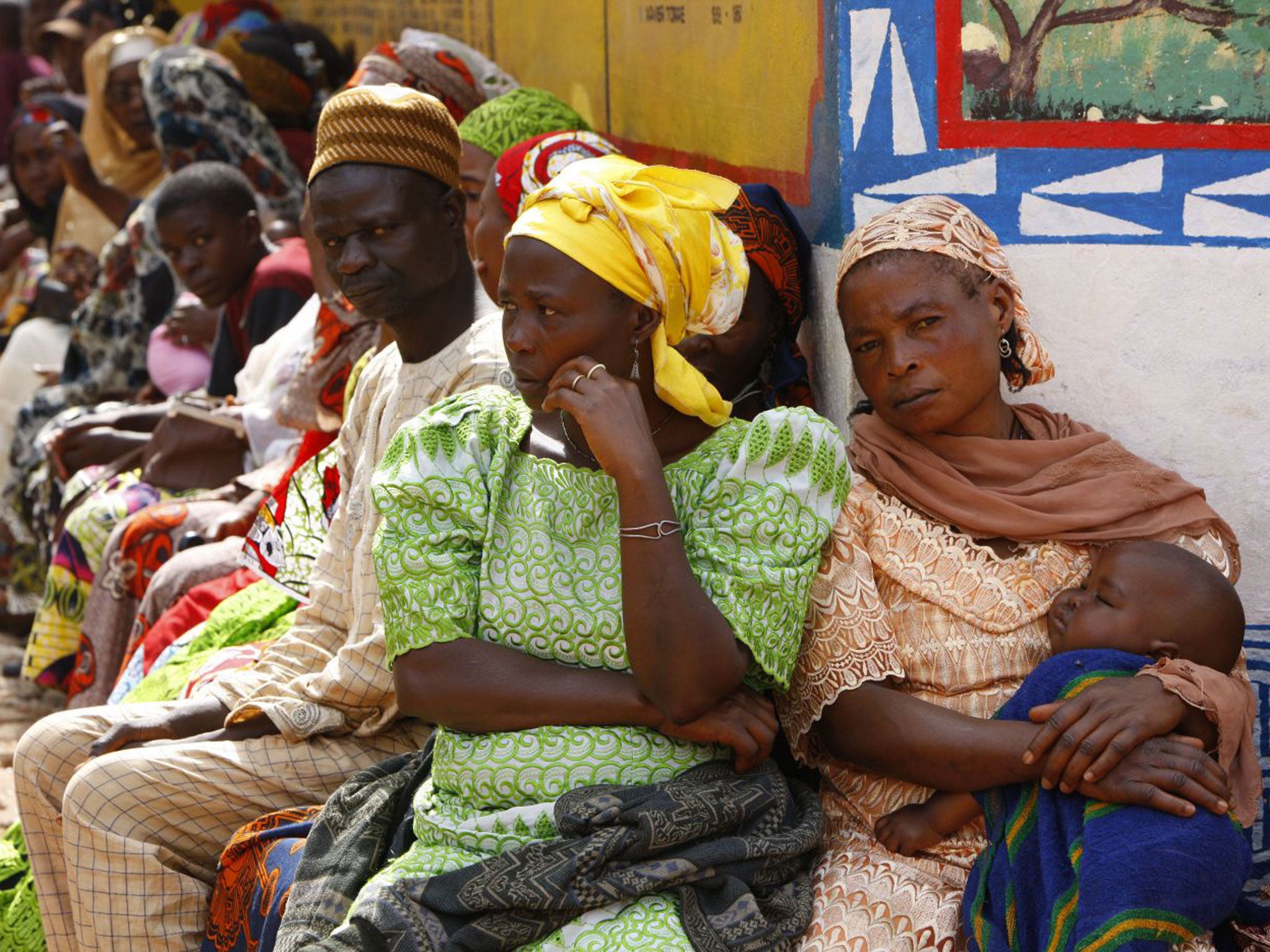'Breast ironing': Girls ‘have chests flattened out’ to disguise the onset of puberty
Barbaric custom that takes place in Cameroon may have been imported to the UK

Your support helps us to tell the story
From reproductive rights to climate change to Big Tech, The Independent is on the ground when the story is developing. Whether it's investigating the financials of Elon Musk's pro-Trump PAC or producing our latest documentary, 'The A Word', which shines a light on the American women fighting for reproductive rights, we know how important it is to parse out the facts from the messaging.
At such a critical moment in US history, we need reporters on the ground. Your donation allows us to keep sending journalists to speak to both sides of the story.
The Independent is trusted by Americans across the entire political spectrum. And unlike many other quality news outlets, we choose not to lock Americans out of our reporting and analysis with paywalls. We believe quality journalism should be available to everyone, paid for by those who can afford it.
Your support makes all the difference.A hidden form of abuse known as “breast ironing”, in which girls as young as 10 have their chests pounded with hot objects to disguise the onset of puberty, could be taking place in Britain.
The mutilation is a traditional practice from Cameroon designed to deter unwanted male attention, pregnancy and rape by delaying the signs that a girl is becoming a woman. Experts believe that the custom is being practiced amongst the several thousand Cameroonians now living here.
A conference on how to prevent the abuse both in the UK and overseas is being held today in Ealing, west London. Its organisers, a charity called CAME Women’s and Girl’s Development Organisation (Cawogido), is already working with the Met Police and social services to tackle the problem.
The Independent understands a woman was arrested two years ago in London because police believed she had performed the procedure on her daughter. She was later released without charge, although the Metropolitan Police was unable to confirm the report but the Association of Chief Police Officers (Acpo) said that the practice was known to them. An Acpo spokesman said: “Similarly to the way we deal with cases of female genital mutilation, we would treat this as a form of child abuse. Police would take steps to safeguard the child or young person and build a case of child abuse to put to the CPS for a decision on charging.”
The UN has identified breast ironing as one of five forgotten crimes against women and estimates that some 3.8 million teenagers are affected. As well as being painful, it exposes girls to health problems including abscesses, cysts, infection, tissue damage and even the disappearance of one or both breasts.
Margaret Nyuydzewira, co-founder and chair of Cawogido, said: “Breast ironing is a practice that happens in the privacy of people’s homes so it’s hard to see who is doing it. I am sure it is happening here, but people are not willing to talk about it. It’s like female genital mutilation: you know it’s happening but you’re not going to see it.
“I was contacted by a police officer who arrested a lady for breast ironing her daughter. There was a discussion of what the laws were and in the end they released her because it was a cultural practice. My argument is if it harms kids it should be against the law.” Breast ironing is common in Cameroon but rarely discussed. Research in 2006 by a Cameroonian women’s organisation and Germany’s Association for International Co-operation (GTZ) found that one in four females in the country had experienced it. In more than half of cases it is mothers who perform the procedure, believing they were protecting their daughters. While most widespread in Cameroon, similar customs have been documented in Nigeria, Togo, Republic of Guinea, Côte d’Ivoire and South Africa.
Cameroonian journalist and women’s rights advocate Chi Yvonne Leina is founder and coordinator of Gender Danger, a grassroots women’s organisation that is fighting to end breast ironing. While her cousin was subjected to it by their grandmother, Leina managed to resist and is now lobbying to wipe out the practice altogether.
She said: “Mothers don’t want other people to know they’re doing it. When my grandmother said she was going to iron my breasts I told her I would shout and scream if she did and tell the neighbours. She didn’t do it as she knew her secret would be out.”
Leina believes the only way the practice will stop is if women talk to each other about it. She said: “We need the silence to be broken. When we move from place to place we carry on our cultures, so anywhere where there’s a high concentration of Cameroonians I would expect it to happen.”
Case study: My mother ‘ironed’ my breasts until they disappeared
"My breasts developed fast when I was 12 and my mum said she’d have to iron them so they’d disappear and come out later. There’s a particular leaf in Cameroon that people use. They put it in the fire and then when it was really hot they press it and massage it on the breast. It was very painful and I cried a lot. But that didn’t work, so later they used a long stick like a pestle heated in the fire. They repeated it after two days and again until the breasts disappeared. It was so painful I couldn’t sleep. When I was 18 my breasts did develop but with a lot of malformation.
We need to do everything possible to stop this happening anymore. There’s no reason people should be doing this.”
Join our commenting forum
Join thought-provoking conversations, follow other Independent readers and see their replies
Comments